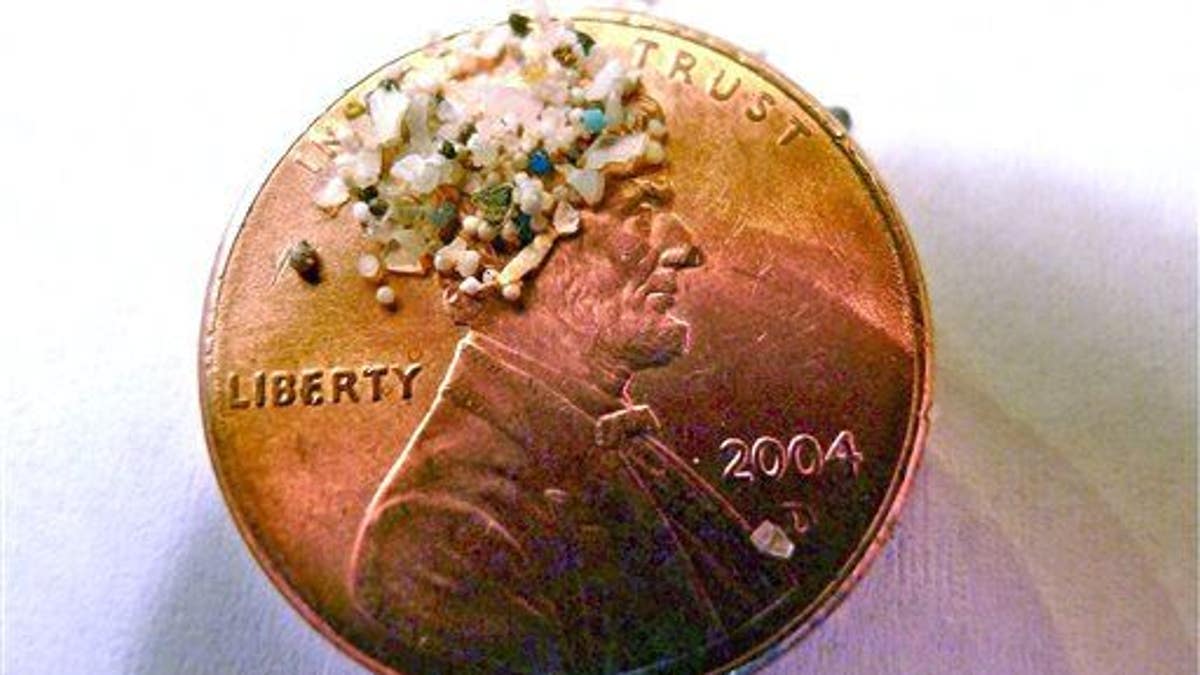
A sample of microbeads collected in eastern Lake Erie is shown on the face of a penny in 2012. (AP Photo/Courtesy 5gyres.org, Carolyn Box, File)
If you brushed your teeth today—and we hope you did—you may have harmed our oceans and the species swimming in them. A new study out of Oregon State University lays out the microplastic problem in our oceans, freshwater lakes, and rivers, which it partly blames on tiny microbeads—the tiny plastic balls in products like face washes and toothpaste that make their way into waterways and may be lethal to animals.
Researchers say some 8 trillion microbeads, enough to cover 300 tennis courts, enter water habitats in the US every day. But that's just 1% of the microbeads floating around.
The other 99%, or 800 trillion microbeads, end up in sewage plants and are spread on land before reaching streams and oceans via runoff, according to a release.
There is some good news: There are nontoxic and biodegradable alternatives for microbeads, but companies need to start using them. "We've demonstrated in previous studies that microplastic of the same type, size, and shape as many microbeads can transfer contaminants to animals and cause toxic effects," says a study author who calls for an outright ban on microbeads.
The International Business Times notes that Illinois, Michigan, Minnesota, Washington, Oregon, and California regulate or ban their use conditionally, but in some cases, microbeads are only prohibited in "rinse off" products, which don't include deodorants and cleaners.
"Biodegradable" microbeads are also allowed, though they may break down only slightly. Recent studies show 90% of seabirds and half of sea turtles have eaten plastic, adds the Washington Post.
(A 20-year-old thinks he can fix the plastic problem.)
This article originally appeared on Newser: Use Products With Microbeads? Stop Now
More From Newser







































